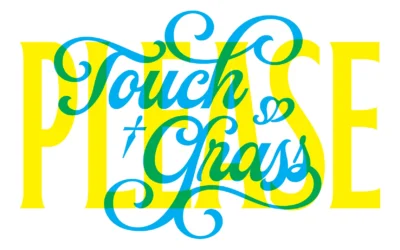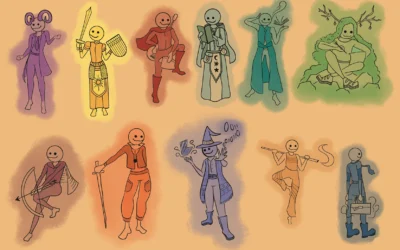Beer gardens, a busy campus bar, and classes made blurry by a bit of a buzz – the first few days of a university term are, essentially, a syllabus-infused party. While the introductory week provides students with a smooth transition into the school year, campus culture unintentionally facilitates troublesome behaviours for young people, who are most susceptible to developing problems with addiction and mental health, according to the Centre for Addiction and Mental Health (CAMH).
Addiction is a behaviour that reaches far beyond the first few days of a semester, and while it’s still not completely understood, it is clear that both behavioural and substance dependencies can take a hugely negative toll on a person’s life.
For college students, recognizing the difference between using, misusing and abusing substances isn’t always easy, as substance use is quite socially accepted (and sometimes expected) within the demographic.
So, when does “normal” substance use become a concern for college-aged people? “It really depends on the individual,” says Jenny Gladwin, an addiction counsellor for young adults at Addiction Services Edmonton. “Realistically, when it impacts your major life areas to a point where you feel like you choose not to do anything about it, or you don’t feel like you’re able to.”
Akil Gulamhusein, a counsellor with a master’s degree in social work, identifies addiction as an interference that can disturb a person’s academics, relationships, and physical health, among other things. People can be addicted to almost anything, whether it be the internet, gambling, pornography, or a substance. In many cases, people are addicted to a combination of things.
Smoking the occasional joint and binge drinking on the weekend might be fairly commonplace among young adults, but Gulamhusein notes, “If you’re noticing that you’re spending an inordinate amount of time trying to pursue some of these habits or some of these behaviours, then, generally, that might be a red flag.”
These red-flag habits can be found in 11.9 per cent of people aged 15 to 24, which is the age demographic with the highest rate of substance abuse, according to a 2013 survey by Statistics Canada.
While addiction negatively impacts millions of Canadians, it is, frustratingly, not yet fully understood. Some people identify addiction as a choice, but this may seem odd when the straight-A student on a full scholarship winds up addicted to alcohol.
“No one starts out as a kid saying, ‘You know, I really someday want to become an addict,’” says Gladwin.
Others label it a disease, but again, this might not make complete sense when the happy-go-lucky all-star athlete can’t kick cocaine reliance. “Living a healthy lifestyle isn’t a guarantee that someone won’t develop an addiction,” says Gladwin.
“Addiction does not discriminate.”
It seems that addiction falls somewhere in the middle, and that it’s best not to oversimplify its explanation. The decision to start engaging in unhealthy behaviours is a choice, says Gulamhusein, but it is not a choice to become dependent on them.
The confusion surrounding addiction becomes even more complicated when associated with yet another mystery of the brain: mental illness.
“One in five people have a mental health concern,” says Gladwin. “What people don’t understand is that 80 per cent of that 20 per cent also has a substance use concern as well. So, when we meet a young adult, it’s usually the rule that they have a mental health concern as well as a substance use concern — not the exception.”
Gladwin also notes that, according to her understanding, addiction is related 10 per cent to genetics and 90 per cent to lifestyle, meaning addiction can be sparked by acute periods of grief and hardship or by longer periods of emotional difficulty.
The environment in which people are raised is also hugely significant, as 70 per cent of mental health problems find their roots in childhood, according to CAMH. Troubled familial and social environments can, for example, lead to feelings of anger and pain from which addictive behaviours can initially provide a distraction.
This initial distraction can, however, turn into a life-destroying vice. Addiction can ruin people’s lives, and this fact shouldn’t be sugarcoated. It is a constant and painful distraction that can destroy relationships. It can result in job loss. It can get students expelled. [pullquote]It can kill you.[/pullquote]
Gladwin cites alcohol, cocaine, marijuana, methamphetamine, and opium as some of the most commonly abused substances among college-aged people, and the stigma attached to abusing these substances only makes the recovery process more difficult. The stigma surrounding addiction and mental illness generates a lot of guilt and shame for those who find themselves struggling with these problems.
“Just because you’re struggling with substances, or you feel you might be struggling with substances, it really doesn’t have anything to do with your character or what kind of person you are,” says Gulamhusein. “Sometimes good people get caught in bad situations.”
Understanding this reasoning isn’t always easy for the loved ones of a person struggling with addiction. Watching a person completely transform into someone unrecognizable is painful, but reacting with anger and resentment is counterproductive. Instead, it’s important to provide a non-judgemental support system that aids the person experiencing addiction throughout the recovery process.
Fortunately, the stigma toward addiction and mental illness is lessening as people grow more compassionate toward these issues and we learn more about the human brain. Still, a near-ubiquitous hesitancy to openly discuss addiction hinders the healing process.
Talking to a trusted person about the problem is vital for recovery. While seeking professional help is one of the best ways to cope with an addiction, there are many resources that can help with the recovery process, including Facebook pages, helplines, and both online and in-person meetings.
Addiction Services Edmonton has a program designed specifically for people aged 18 to 24 years old, and it features a semi-peer-run support group and a leisure program, providing young adults the opportunity to socialize in a sober environment. Programs like this one are popular and work to help people recognize key behaviours that are contributing to their addictions, thus promoting the desire to change.
There is a common misconception that this desire to change happens only when a person’s addiction causes them to hit rock bottom.
“You ever hear that expression, ‘You’ve got to hit the bottom of the barrel?’” says Gulamhusein. “I think that’s completely untrue.”
Ideally, prevention is the most successful way to deal with addiction, especially for those who think they might be more susceptible to it. For university students in particular, it is important to establish a healthy routine and to have meaningful leisure time and relationships.
Like with most illnesses, the earlier addiction is caught, the easier it is to heal. Overcoming an addiction is one of the most challenging and taxing things a person can accomplish – and it truly is an incredible accomplishment. While overcoming seemingly insurmountable odds is intimidating, the freedom to live a life where you are stronger than your vice is well worth the climb.
This story has been edited to reflect that Jenny Gladwin, not Akil Gulamhusein, understands addiction to be related 90 per cent to lifestyle and 10 per cent to genetics. We regret the attribution error.
Photos by Madison Kerr





0 Comments